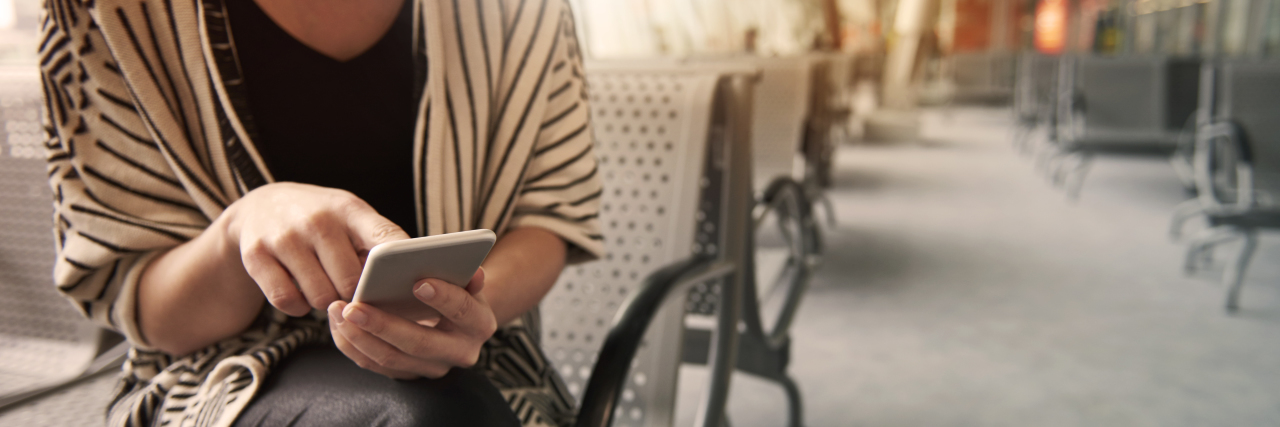The 2 Questions You Should Ask Yourself Before Following an Eating Disorder Recovery Instagram
When I first began recovering from my eating disorder, I found myself searching for social media accounts that would reinforce the body positive message I had been trying to internalize. Living in a world full of diet culture, it was understandable that I sought to find a safe haven from any mention of diets or cleanses.
Much to my joy, I noticed that there were what seemed like hundreds of Instagram accounts with the word “recovery” in them. Let’s just say that I went “follow happy.” I soon came to realize though, that while many of these accounts were focused on recovery, some were not serving my recovery. In fact, I found my thoughts becoming more disordered. This was no fault of the people whose accounts I followed. Rather, I realized that given my current stage in recovery, certain accounts were not helpful to me. I also realized that my reasons for following these accounts had their own disordered motivation.
Of course, I do not want to discount the value of these accounts, not only for those who follow them, but for those who create them. At this point, I still follow a number of recovery oriented accounts, and I draw a lot of motivation from them; however, I am much more careful about not only which accounts I follow, but my reasons for doing so.
Here two important questions I ask myself before I click “follow”:
1. Am I tempted to make comparisons?
As many people know, comparisons are common in the world of eating disorders. Comparisons are what often stop people from getting treatment because they do not think they are “sick enough.” It is undeniable that people of all sizes struggle from eating disorders, and yet, I often found myself looking at pictures and comparing my body to others’. I also found myself looking at before and after photos, and minimizing my own struggle based on the lack of dramatic change in my body. Before and after photos may be helpful for some, but early in my recovery, I found them too triggering. In addition to comparing bodies, I sometimes found myself comparing meals, exercise habits and even recovery progress. The bottom line is, if I find myself questioning my own health based on someone else’s, I know this is not a good account for me to follow.
2. What am I hoping to get out of his account?
So when I first began looking at Instagram accounts, I was mesmerized by the pictures of food. The fact was, this preoccupation with food was not new; it was quite common when I was in the midst of my eating disorder. After all, I was not allowing myself eat it, so looking at pictures was the only way to satisfy my hunger. Even as I moved through recovery, I still found myself living vicariously through other people’s pictures of food. I was continuing to interact with food without actually eating it. I can definitely see why taking pictures of food can help someone with regards to accountability. That said, for me, I found it to be a new manifestation of my food obsession. I also found that following recovery accounts allowed me to continue to think about the eating disorder, even if I was not engaging in behaviors. I realized the eating disorder was still filling a void. Sometimes it acted as a distraction, other times, it gave me a sense of familiarity. In any case, it was allowing the disorder to take up my time, energy and attention.
Finally, it’s important to understand that no one account will affect two people the same way. What might be triggering for some won’t be for others. That’s why it’s good to check-in with yourself. Remember, your recovery has to be the priority.
If you or someone you know is struggling with an eating disorder, you can call the National Eating Disorders Association Helpline at 1-800-931-2237.
We want to hear your story. Become a Mighty contributor here.
Getty image via gpointstudio

